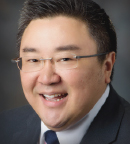Natural killer (NK) cells derived from donated umbilical cord blood, activated with a novel bispecific antibody targeting CD16A and CD30 known as AFM13, have yielded responses in patients with pretreated and refractory CD30-positive lymphoma. The overall response rate was 89%, with 53% complete remissions, in patients with relapsed or refractory CD30-positive lymphoma, according to results from an investigator-initiated phase I/II trial reported at the American Association for Cancer Research (AACR) Annual Meeting 2022.1 All patients treated at the recommended dose for phase II responded, for an overall response rate of 100%, with a 62% complete remission rate in this cohort. Tolerability was reported to be excellent, with none of the treatment-related adverse events associated with chimeric antigen receptor (CAR) T-cell therapy.

Yago L. Nieto, MD, PhD
“This is the first clinical trial using off-the-shelf, cord blood–derived, cytokine-induced memory-like ex vivo expanded NK cells precomplexed with the innate cell engager AFM13 construct to treat patients with CD30-positive relapsed or refractory Hodgkin and non-Hodgkin lymphomas. Our preliminary results show encouraging tolerability in heavily pretreated patients, with no instances of cytokine-release syndrome, neurotoxicity, or graft-vs-host syndrome. This approach warrants further investigation for treatment of CD30-positive lymphomas,” stated Yago L. Nieto, MD, PhD, Professor of Medicine, Department of Stem Cell Transplantation and Cellular Therapy, The University of Texas MD Anderson Cancer Center, Houston.
The novel approach uses NK cells from banked umbilical cord blood, which differs from CAR T-cell therapy. Typically, CAR T-cell therapy utilizes a patient’s own T cells in the manufacturing process, although off-the-shelf CAR T-cell therapies are being developed.

“Nearly every patient responded, and the flip side was there was no toxicity. We don’t usually see results like this in a phase I trial.”— Timothy Yap, MBBS, PhD, FRCP
Tweet this quote
“These results are very impressive,” commented AACR Clinical Trials Committee Co-Chair Timothy Yap, MBBS, PhD, FRCP, of The University of Texas MD Anderson Cancer Center. “Nearly every patient responded, and the flip side was there was no toxicity. This is a highly effective therapy, and we are building on the use of chemotherapy and CAR T-cell therapy, although these results apply to a specific population of patients with CD30-positive lymphoma. The next step is a larger phase II trial. We don’t usually see results like this in a phase I trial. This is potentially practice-changing for this specific molecularly selected group of patients,” Dr. Yap said.
Background
The technology to isolate and expand NK cells from umbilical cord blood was developed at MD Anderson. AFM13 is a proprietary first-in-class bispecific antibody construct designed to bind to CD16A on NK cells and CD30 on lymphoma cells, acting as a bridge between the two cell types to allow the NK cells to destroy the cancer cells. The NK cells are activated with cytokines, expanded in the presence of artificial antigen–presenting cells, and finally complexed with AFM13 before their infusion into the patient.
This combination approach was developed in the laboratory of Katy Rezvani, MD, PhD, Professor of Stem Cell Transplantation and Cellular Therapy at MD Anderson. Studies in her lab showed that linking AFM13 to cord blood–derived activated NK cells prior to infusing them into mice was more effective than treating mice with AFM13 alone or preactivated and expanded NK cells not linked to AFM13.

Katy Rezvani, MD, PhD
At a press conference where these findings were discussed, Dr. Rezvani briefly explained the process. “The difference between CAR T-cell therapy and the NK cells used in this approach is there is one donor for the T cells. We can get NK cells from multiple donors and treat multiple patients. AFM13 takes away some of the complexity of the procedure. We load our NK cells with AFM13 for 1 hour and then wash it off. The engager binds to the substance using a CAR-like manufacturing process. The ease of manufacturing allows NK cells to be used with other engagers and antibodies,” she told listeners. “This -potential application in cancers other than CD30-positive cancers has not been studied yet.”
Study Details
The clinical study, based on the results of the mouse experiments, used NK cells separated from banked umbilical cord blood and manufactured in a GMP [good manufacturing process] lab over a 2-week period. The cells were preactivated with cytokines, expanded in the presence of artificial antigen-presenting cells, and precomplexed with AFM13. Patients received lymphodepleting chemotherapy with fludarabine/cyclophosphamide and then were infused with AFM13 CAR-like NK cells. At 7, 14, and 21 days following the infusion of AFM13-NK cells, patients received an intravenous infusion of AFM13 alone. Response was assessed at 28 days. Patients were treated for two cycles. Three different dose levels of the expanded, precomplexed NK cells were evaluated, and the recommended dose carried forward for phase II was identified as 1 × 108/kg, which was the highest dose.
Eligibility criteria included immunohistochemistry-documented relapsed or refractory CD30-positive lymphoma, patient age between 15 and 75, and an Eastern Cooperative Oncology Group performance status of up to 2. Adequate end-organ function was required. Active central nervous system involvement was not allowed.
The study enrolled 22 patients, with a median age of 40. Two-thirds were male. A total of 20 patients had Hodgkin lymphoma, and 2 had T-cell non-Hodgkin lymphoma. The racial breakdown of participants was 15 White (68.2%), 3 Hispanic (13.6%), 3 Middle Eastern (13.6%), and 1 Black (4.5%).
The median number of prior lines of therapy was seven (range, 1–14). All 22 patients had been treated with prior brentuximab vedotin; 21 patients received prior anti–PD-1 therapy, 14 had prior stem cell transplantation, and 2 had prior CD30 CAR T-cell therapy. The median number of prior relapses was six, and all 22 patients experienced progressive disease immediately after prior therapy. No bridging therapy was administered between enrollment on study and start of treatment.
“The treatment was shown to be safe, with no cases of cytokine-release syndrome, neurotoxicity, or graft-vs-host disease,” Dr. Nieto said. No dose-limiting toxicity was identified, and dose level 3 was established as the recommended phase II dose going forward.
Key Findings
A total of 19 patients were evaluable for response. The objective response rate for all patients was 89.3%, and it was 100% for all 13 patients treated with the recommended phase 2 dose (1 × 108/kg). At a median follow-up of 9 months and lead follow-up of 19 months, nine patients remain in complete response, including two who remain in response after 10 months and three who received a stem cell transplant and remain in response at 19, 6.5, and 6.5 months, respectively. The progression-free and overall survival rates across all three dose levels were 52% and 81%, respectively.
Dr. Nieto explained that the preactivated NK cells are detected in serum for up to 3 weeks. “The expansion and persistence of NK cells at cycle 2 are the same as after cycle 1. This is a big difference from autologous CAR T cells in that patients are not desensitized after each cycle of NK therapy,” he explained.
The trial was originally intended to assess the durability of response to two cycles. An amendment has been approved by the U.S. Food and Drug Administration to increase the length of treatment from two to four cycles, enabling longer follow-up of patients.
“These data suggest this new option, either used as a bridge to stem cell transplantation or perhaps even as a curative treatment, offers an effective treatment option for patients with refractory CD30-positive lymphoma,” Dr. Nieto said. “We are excited about these findings and the possibility of bringing this treatment to this patient population with a large unmet need.”
DISCLOSURE: The study was funded by Affimed. Dr. Nieto has served on the advisory board for Affimed; and has received research funding from Affimed, AstraZeneca, Securea Bio, and Novartis. Dr. Yap has received institutional research funding from Acrivon, Artios, AstraZeneca, Bayer, BeiGene, BioNTech, Blueprint, BMS, Clovis, Constellation, Cyteir, Eli Lilly, EMD Serono, Forbius, F-Star, GlaxoSmithKline, Genentech, Haihe, ImmuneSensor, Ionis, Ipsen, Jounce, Karyopharm, KSQ, Kyowa, Merck, Mirati, Novartis, Pfizer, Ribon Therapeutics, Regeneron, Repare, Rubius, Sanofi, Scholar Rock, Seattle Genetics, Tesaro, Vivace, and Zenith; has consulted for AbbVie, AstraZeneca, Acrivon, Adagene, Almac, Aduro, Amphista, Artios, Athena, Atrin, Avoro, Axiom, Baptist Health Systems, Bayer, BeiGene, Boxer, Bristol Myers Squibb, C4 Therapeutics, Calithera, Cancer Research UK, Clovis, Cybrexa, Diffusion, EMD Serono, F-Star, Genmab, Glenmark, GLG, Globe Life Sciences, GSK, Guidepoint, Idience, Ignyta, I-Mab, ImmuneSensor, Institut Gustave Roussy, Intellisphere, Jansen, Kyn, MEI pharma, Mereo, -Merck, Natera, Nexys, Novocure, OHSU, OncoSec, Ono Pharma, Pegascy, PER, Pfizer, Piper-Sandler, ProLynx, Repare, resTORbio, Roche, Schrodinger, Theragnostics, Varian, Versant, Vibliome, XinThera, Zai Lab, and ZielBio; and holds stock in Seagen. Dr. Rezvani reported financial relationships with Takeda, Affimed, GEMoaB, Avenge Bio, Virogin Biotech, GlaxoSmithKline, Caribou, and Bayer.
REFERENCE
1. Nieto Y, Banerjee P, Kaur I, et al: Innate cell engager (ICR®) AFM13 combined with preactivated and expanded cord blood-derived NK cells for patients with refractory/relapsed CD30+ lymphoma. AACR Annual Meeting 2022. Abstract CT003. Presented April 10, 2022.

